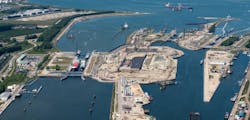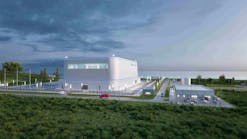Linde and bp to develop CCS project in Texas to produce low-carbon Hydrogen
Oil and gas firm bp and chemical firm Linde will undertake a carbon capture and storage (CCS) project in Texas for facilitating low-carbon hydrogen production at Linde’s existing facilities.
The project will capture and store CO2 from the facilities in the Houston area and Linde’s other Texas facilities to produce low carbon hydrogen, which will be sold to customers under long-term contracts. Linde’s hydrogen pipeline network will be leveraged for delivery.
The system will also enable carbon capture and storage from other large industrial facilities in the region. The capacity of the system will be 15 million metric tons per year across multiple onshore geologic storage sites. The development is expected to be operational in 2026.
bp (British Petroleum) will appraise, develop and permit the geological storage sites for carbon sequestration. The oil firm already is developing carbon capture and hydrogen projects elsewhere in the U.S. and United Kingdom, according to reports.
“The energy expertise in Texas and strong supply chains have been generations in the making," Dave Lawler, Chairman and President of bp America, said. “This new low carbon energy project will help us leverage those strengths for the next chapter of the energy transition. In particular, it can help decarbonize hard-to-abate industries for the greatest potential impact on emissions while protecting jobs. bp is proud to support this project as we continue delivering on our own strategy and net zero ambition.”
Linde has committed to lowering its absolute carbon emissions 35 percent by 2035 and reaching net zero by 2050.
“Capturing the CO2 from our hydrogen production plants in the Houston area will be a significant step towards achieving these goals,” added Dan Yankowski, president, Linde Gases North America.
He added that Linde is positioned to enable similar projects across the Gulf Coast where it operates two hydrogen pipelines and a hydrogen storage cavern.





